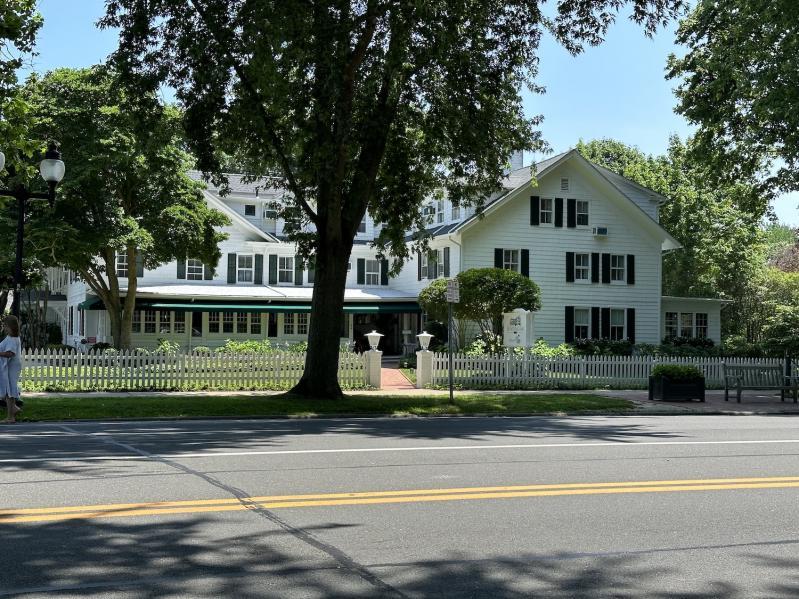The owner of the Huntting Inn, spurned by an October decision of the East Hampton Village Zoning Board of Appeals that a pool and other improvements it had planned for its historic property could not be considered, filed papers last week to sue the board and the village.
The zoning board did not deny the improvements. Instead, after many meetings discussing the application over the course of nearly three years, Timothy Hill, the board’s attorney, said that the Z.B.A. did not have authority to permit the requested variances. The Huntting Inn is owned by Tilman Fertitta, the C.E.O. of Landry’s Inc., a national hospitality group, and has been represented by the attorney Martha Reichert of Twomey, Latham, Shea, Kelley, Dubin & Quartararo.
“Upon a close consideration of village code, the application of its plain language simply does not confer authority for this board to grant those portions of this application that would involve the introduction of an outdoor use,” Mr. Hill told Ms. Reichert at a September meeting. “It’s simply a bar to its authority to grant that” for a commercial use in a residential district that pre-exists zoning regulations.
Mr. Hill’s interpretation allowed the Z.B.A. to issue an Oct. 11 determination in which it refused to rule on the inn’s request for a swimming pool, spa, and patio, because they are all new outdoor uses.
In court papers, Ms. Reichert said the ruling was “in bad faith, affected by an error of law, and constituted a deprivation of due process, a deprivation of equal protection, and a taking of property.”
—
Correction: An earlier version of this article said that Landry's Inc. owns the Huntting Inn. In fact it is owned by Tilman Fertitta, who is the C.E.O. of Landry's, but not by the company itself.




